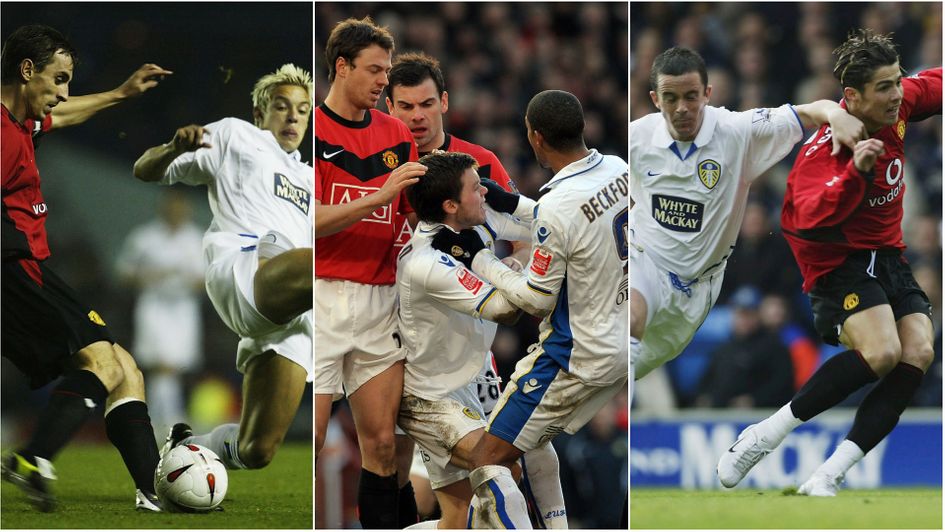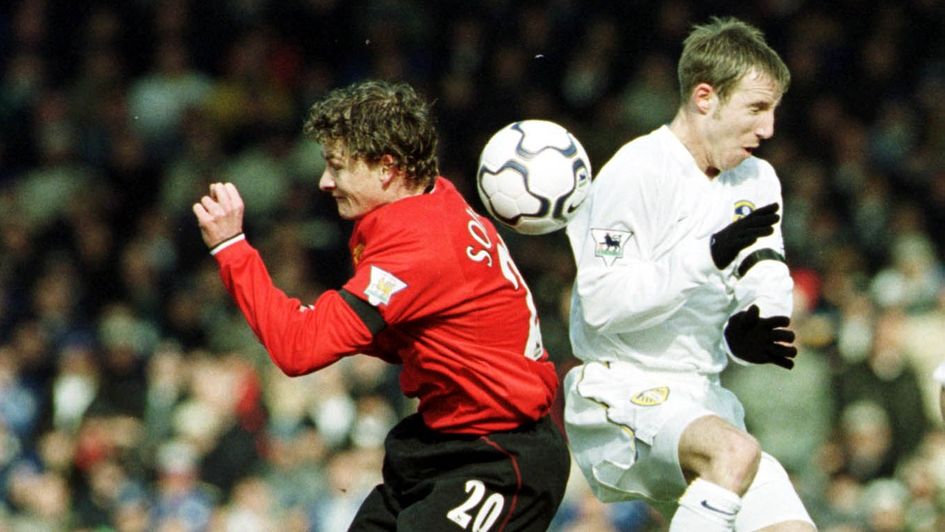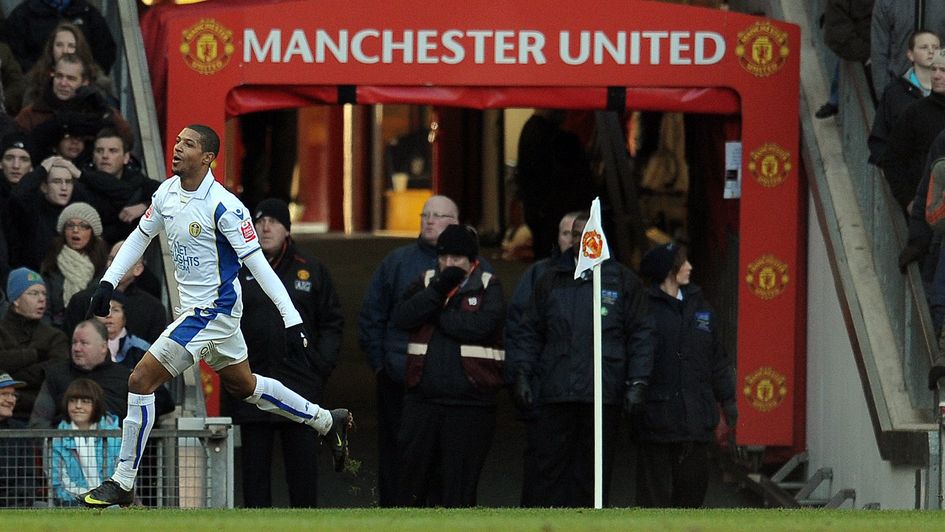Manchester United were England’s team of the 2000s. They ended the decade with three consecutive league titles, back-to-back appearances in the Champions League final and the tag of the best side in Europe in 2008.
They started the next decade with a home defeat to a third-division club. Not just any third-tier outfit.
Leeds and Manchester United remains one of the great rivalries, albeit between clubs from different cities who have spent the last 16 years in different divisions.
Even Sir Alex Ferguson was taken aback by some of the vitriol. “Liverpool-Manchester United games have always been fierce in many aspects, but it never reaches the levels of Leeds versus United,” he once said.
They reconvene on Sunday after meeting only twice since 2004: a comfortable 3-0 win for the Mancunian United at Elland Road in the League Cup in 2011, and the previous year’s FA Cup tie at Old Trafford, where Ferguson selected Wayne Rooney and Dimitar Berbatov and summoned Ryan Giggs from the bench, but where Jermaine Beckford scored the only goal. Beckford’s father is a Manchester United fan but like many a rivalry, this is a complicated affair.
They met first in 1923, but games began to assume a greater significance four decades later. The two Uniteds were competing for trophies in the 1960s. It was Matt Busby against Don Revie. It was also Charlton against Charlton, Bobby against Jack, World Cup-winning brothers who could have become club colleagues had Busby’s bid to sign Jack succeeded.

Instead, the pivotal transfer across the Pennines was Revie’s signing of Johnny Giles, the 1963 Manchester United FA Cup winner who was Nobby Stiles’ brother-in-law. “I am going to haunt him,” Giles said of Busby. He formed a famously fearsome midfield partnership with Billy Bremner in Leeds’ greatest side, one which George Best branded “the most cynical team of all time.”
Leeds were often nearly men. They were pipped to the title on goal average in 1965 by Manchester United; Leeds were knocked off top spot with a 1-0 home defeat to their other United in April. But Leeds won FA Cup semi-finals between them in 1965, when Jack Charlton and Denis Law had traded punches and neither was even booked for violent conduct, and 1970.
In 1968, Manchester United were European Cup winners and Leeds Fairs Cup winners. Six years later, the post-Busby United were relegated and Revie’s Leeds were dominant champions. Twelve months after that, Leeds were European Cup finalists, Manchester United promoted. The balance of power swung back towards the club who had endured the ignominy of a season in Division Two.
Manchester United tempted Gordon McQueen and Joe Jordan across the Pennines in 1978. McQueen once remarked that 99 percent of players would say they want to play for Manchester United and the other 1 percent are liars. It is unlikely to have made him any friends at Elland Road.
👟 Jermaine Beckford has announced his retirement from football, aged 35.
— Sporting Life Football (@SportingLifeFC) August 27, 2019
😎 He scored plenty of goals in his career, none greater than this one at Old Trafford to firmly write himself into Leeds United folklore...
👇 #LUFCpic.twitter.com/tnJSb1kgmD
Leeds spent much of the 1980s in the old Division Two. The catalyst for their comeback came from Old Trafford: Gordon Strachan, who had played for Ferguson at Aberdeen and then United, was allowed to join Leeds. He captained Leeds to promotion and then, more improbably, the final Division 1 title in 1992.
By then, Manchester United had gone 25 years without winning the league. For them, too, salvation came from an enemy. Leeds managing director Bill Fotherby rang United chairman Martin Edwards to ask about re-signing Denis Irwin; Edwards asked Ferguson, who in turn introduced the name of Eric Cantona to the conversation.
Irwin did not move, but Cantona did. One of the earliest Premier League transfers remains arguably the most influential. An era of dominance, of 13 titles in 21 years, began with Leeds’ phone call.

They were a lower-league club for Ferguson’s final nine years, but they had posed a renewed threat to him beforehand. It was Leeds, not Manchester United, who began the 2000s on top of the Premier League. David O’Leary’s youthful, aggressive team seemed potential champions.
They went further than them in the 2001 Champions League, when they were semi-finalists. But O’Leary’s Leeds never beat Ferguson’s side and Manchester United’s 4-3 win at Elland Road in 2002, featuring an Ole Gunnar Solskjaer double, hastened the Irishman’s demise.
He was sacked that summer. Ferguson took advantage of Leeds’ financial problems to sign their captain Rio Ferdinand for £30 million, a world record fee for a defender. A cheaper, but still more controversial, transfer came two years later.
Leeds’ ignominious plummet to relegation led to a fire sale but while Alan Smith, the lifelong Leeds fan who had declared he could never play for Manchester United, was likely to leave, the heretical element was that it was for the bitterest of rivals.

A common denominator is that these two Uniteds have a host of feuds, many local and some more distant, but there is something particularly fierce, something especially visceral about their feelings for each other.
They meet on Sunday, renewing a rivalry rooted in history and yet when much of it feels distant. But it can drag its participants back to earlier days.
A few weeks before that 2010 FA Cup tie, Leeds manager Simon Grayson bumped into Brian Flynn at Liverpool airport. The Welshman informed him that, in 1981, he was the last Leeds player to get a winner at Old Trafford. Now that mantle rests with Beckford.
He was a League One player at the time, but his name now belongs alongside those of Charlton and Giles, Cantona and Strachan in the long tale of the two Uniteds.










